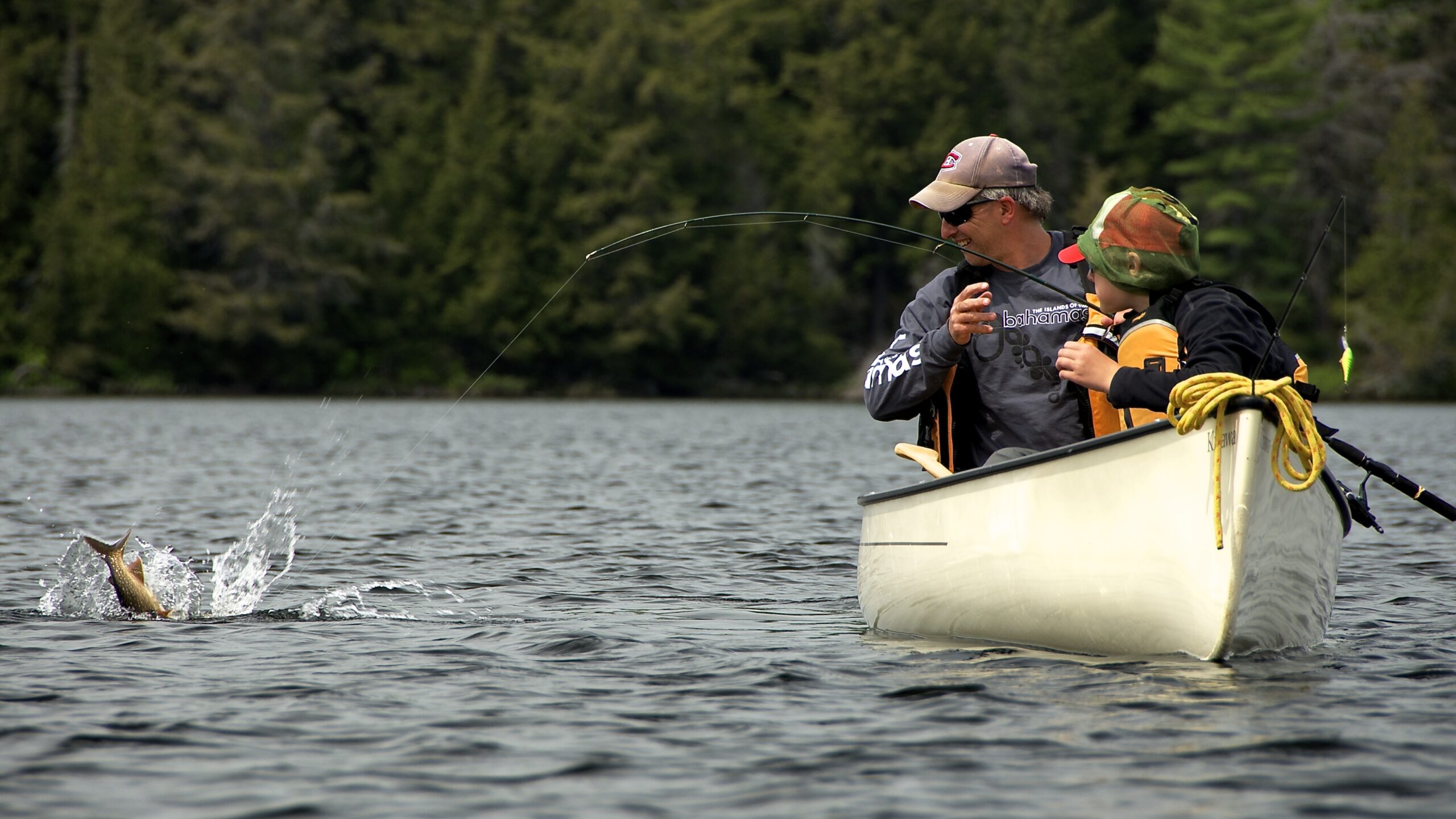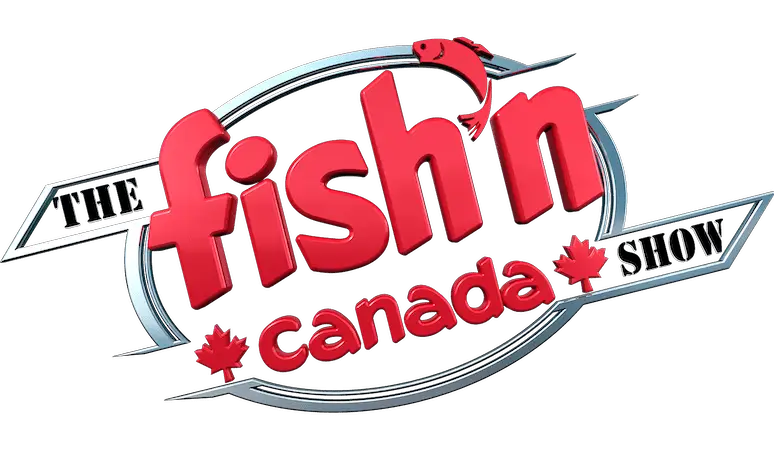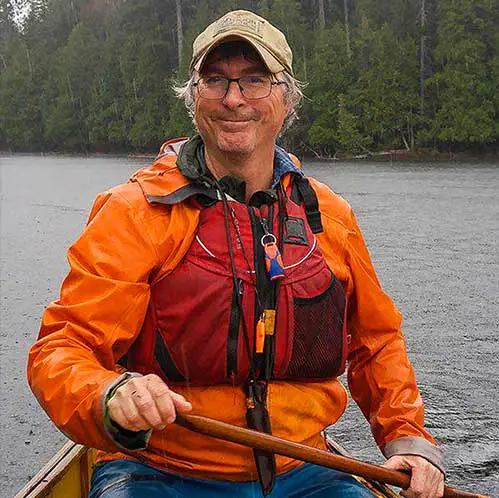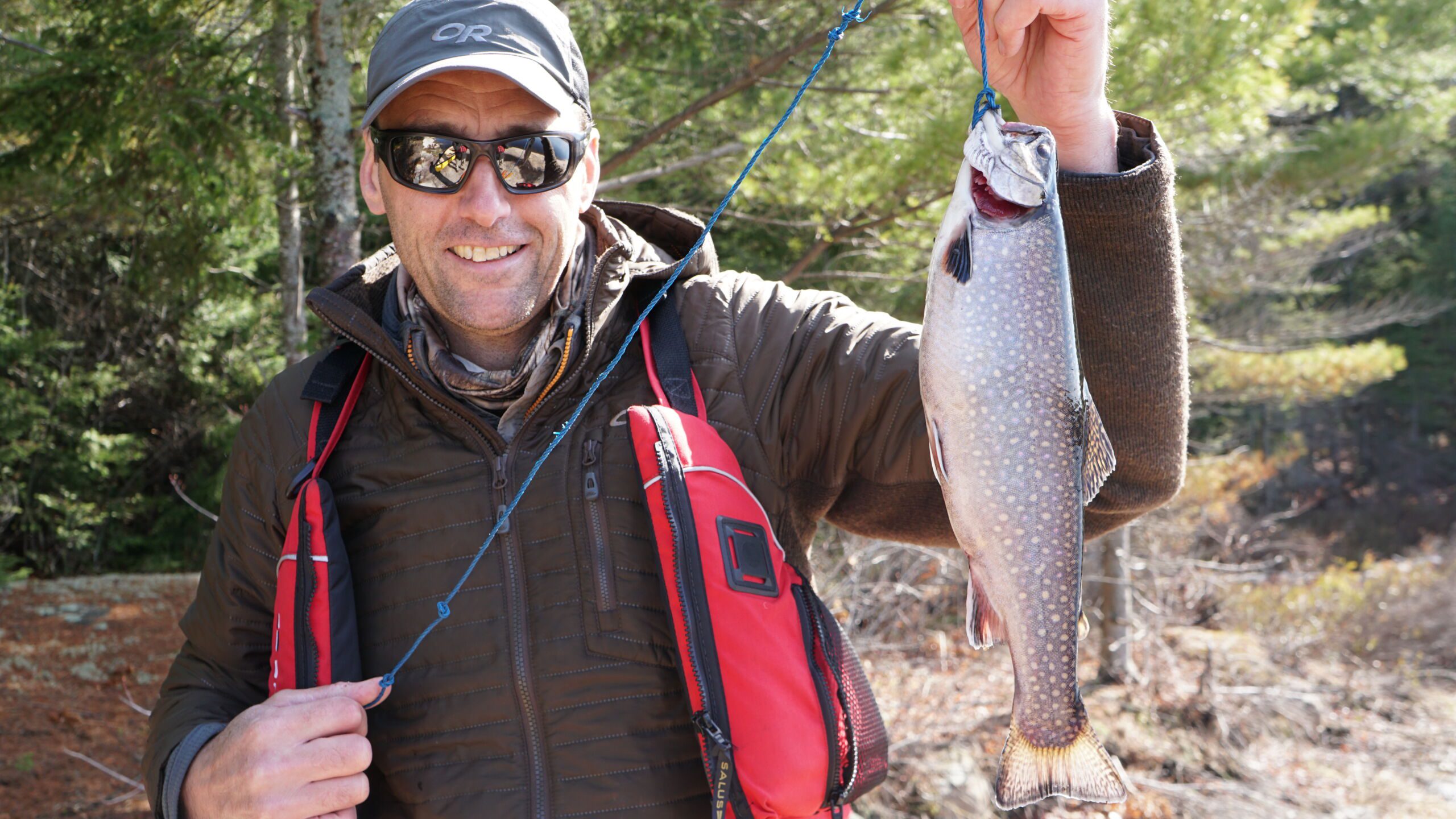“Things fishermen know about trout aren’t facts, but articles of faith.“
—John Gierach
To many park users, trout fishing defines Algonquin. Hundreds of anglers dream of the yearly ritual of heading out on opening season day, paddling and portaging deep into the interior in search of trophy square tails and fat lakers, praying the ice has left the lakes and the black flies have yet to hatch. Lots of time and money has been invested by the park’s fisheries department in making sure the trout population remains sustainable. The effects of mercury contamination and acidification from acid rain have been researched extensively, as has over-harvesting. And now the blue-green algae issue.
Trout are finicky fish. They’re slow to grow, late to mature and have low reproductive rates. They also don’t get along with other fish, especially during spawning. Perch will take over their food source and pike can decimate them. Algonquin has the majority of Ontario’s naturally reproducing trout lakes, which makes it special. However, only 240 of Algonquin’s 1,400 lakes have self-sustaining trout populations. The others need help by re-stocking efforts.

Trout are great indicator species because they’re one of the first to be affected by change. The decline of Algonquin’s brook trout and lake trout would herald the death of why the park was created in the first place. To me, catching a wild native trout is one of the true symbols of wilderness. Once you’ve lost this ability there’s no turning back.
Methods to protect the Algonquin trout have varied over the years. Some were grave mistakes—for example, dumping fertilizer and introducing Cisco to some lakes, both which were thought to fatten the fish up and make anglers happier with their catches. Other conservation efforts, such as size limits, banning baitfish and closing a lake off to fishermen for a period, seem to be working. The main reason trout still thrive in Algonquin, however, is that it’s still darn difficult to reach the prime interior lakes to try your luck.
And once an Algonquin angler finds his honey hole he usually takes it to his grave.
Check out my latest KCHappyCamper YouTube video:





